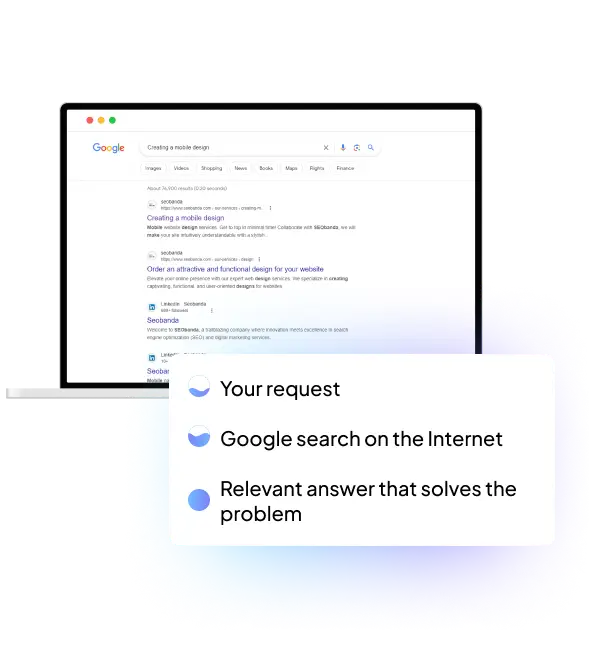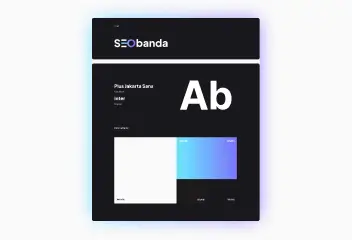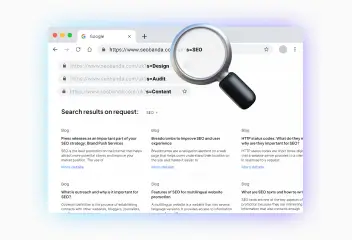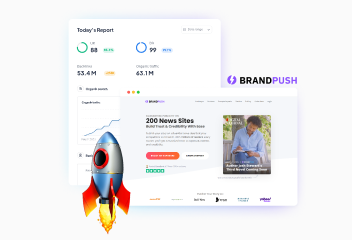What is relevance and how does it affect online search?
Relevance is a match. It is an indicator of how well the search results match the user’s query. A relevant text or website is one that fully meets the user’s expectations and needs. High relevance means that a person will see exactly what they want. If a person searches for “buy a bike,” the most relevant sites will be those where they can buy a bike.





Why is relevance important for ranking?
The main goal of any search engine is to provide the user with exactly what they are looking for. If the text is relevant, then it is ideal for answering the user’s query, Google notices this and realizes that the text is useful and promotes it.
Let’s look at an example. A person writes “Buy a bicycle”, clicks on the first link, and sees an article about why a bicycle is better than a scooter. The topic seems to be the same, but the user did not get what he wanted. His goal was to buy a bike, not read an article about it. Therefore, the page of any online store that sells bicycles will be more relevant for such a user. Then he will be able to get what he wants and it will be relevant content.


How is relevance determined?

Search engines use complex algorithms to determine relevance. Here are some factors that Google pays attention to:
- Keywords: how often and in what context the keywords appear in the text. Google prefers direct occurrence of keywords. This means that when you ask “Who are SEObanda”, search engines try to find the phrase “Who are SEObanda” or the closest to it on any website.
- Collecting the semantic core: understanding the content and meaning of the words in the query for a more accurate selection of results. That is, SEO specialists first analyze keywords, break them down into classes (search directions) to understand what exactly the user wants to see when they form their query in a search engine. Then the query “buy a bike” will direct the user to the store, not to an article or repair service.
- Behavioral factors: search engines take into account how users interact with the content on a website (number of clicks, time spent on the page, return to search results, number of pages visited at a time). This shows search engines how useful and relevant the content is. If the content is interesting to the user, he or she will stay longer and read the text to the end. Google reads this and realizes that such a page should be promoted.
- Geo and personalization: search engines often use information about the location, previous queries, and preferences of users (so-called cookies) to provide more relevant search results. Google believes that if you are looking for the same bike, it is better to show you stores that are located in the same city as you. Such information will be objectively more relevant, because then you will be able to physically visit the store and get what you were looking for.

Increase visibility
for your business: SEO solution for growth!


The impact of relevance on search results
Relevance is one of the key points in SEO and here’s why:
- User satisfaction: Highly relevant search results increase customer satisfaction because they can find the information they need quickly.
- Trust from search engines: when any search engine sees that your content is relevant, it trusts your site more and promotes it. It is beneficial for search engines that you provide relevant information.
- CTR (click-through rate): the relevance of meta tags affects the percentage of click-throughs to the site. That is, if a person searches for a bicycle and sees the title “Buy a scooter” in the search results, he or she will not go to this site because it is not relevant and does not meet the query. But if the headline is “Buy a bike at a wholesale price in Kyiv,” this query will be as relevant as possible (if you live in Kyiv) and you will be more likely to click on the link.
In general, all factors converge on these three. Any work on content relevance is done precisely to inspire the trust of search engines, provide accurate information to users, and increase CTR.


How to increase website relevance?

Let’s take a look at how to understand what people are looking for and how to make your website more relevant (and, as a result, raise it in search results):
Keyword research
The first step to increasing relevance is to understand what keywords and phrases your potential customers are using. To do this, you need to:
- Use keyword research tools such as Google Keyword Planner, Ahrefs, SEMrush, etc. to find relevant keywords.
- Do a competitor analysis. Research which keywords your competitors are using and which pages they are ranking for.
- Use long-tail keywords. Focus on long-tail keywords because they are more specific and less competitive. These keys include queries like “Buy a winner bike with a 19-inch frame and five speeds”. Such a query is usually written by people who know exactly what they want to buy and are more likely to buy this product.
Content optimization
Now you understand how potential customers make a request. What’s next? Create high-quality content that meets the needs and demands of users. This is the basis of relevance, so what you need to do next:
- Create relevant content. Write articles, blogs, infographics, and other materials that answer users’ questions and solve their problems.
- When writing, use headings (H1, H2, H3), paragraphs, lists, and other elements to make it easier to read and navigate the page.
- Update content regularly to keep it relevant and accurate.
Technical optimization
Technical aspects also affect its relevance and ranking in search engines. If the site takes a long time to load, the user will leave it and not even see the content (even if it is really relevant), so for better ranking, you need to:
- Optimize page loading speed by compressing images, using caching, and minimizing code.
- Customize the site for mobile devices, as mobile traffic accounts for more than 60% of the total number of search engine queries.
- Use valid (correct) HTML/CSS code to ensure that the site is displayed correctly.
Improving the structure of the site
A convenient and logical website structure helps users and search engines better understand its content. To do this, you need to:
- Provide easy site navigation using a clear menu and internal links. By the way, internal linking between pages on the site is an important indicator for SEO, as it contributes to the ease of navigation and understanding of the site.
- Create an XML sitemap to make it easier for search engines to index your site.
- Use clear URLs that contain keywords and reflect the structure of the site.
Setting up link building
Backlinks from reputable and relevant sources improve your website’s position in search engines:
- Get backlinks from authoritative websites, blogs, and media.
- Write guest posts on relevant websites with a link to your content or product.
- Create content that will be useful to others so that they link to your site themselves.

Increase visibility
for your business: SEO solution for growth!


Conclusions
Relevant content can significantly improve your website’s rankings, increase CTR, and boost your sales. To properly optimize your content, you need to analyze competitors, collect a semantic core, create relevant and useful content, and promote it with backlinks. If you want your content to be always up-to-date, relevant, and attract new customers, contact SEObanda and we will help you improve your website!
You may also like it

Brand identity: The key to brand recognition and SEO success
Every product has its own unique feature that sets it apart from other brands. It could be a special font, a unique mascot, or an interesting logo with the right...

What is a dynamic URL and its impact on SEO
A dynamic URL (Uniform Resource Locator) is a web address that changes depending on the user's request or specific parameters. It differs from a static

Press releases as an important part of your SEO strategy: Brand Push Services
SEO is the best promotion on the Internet that helps attract more potential clients and improve your market position. The use of press releases is an important SEO...












